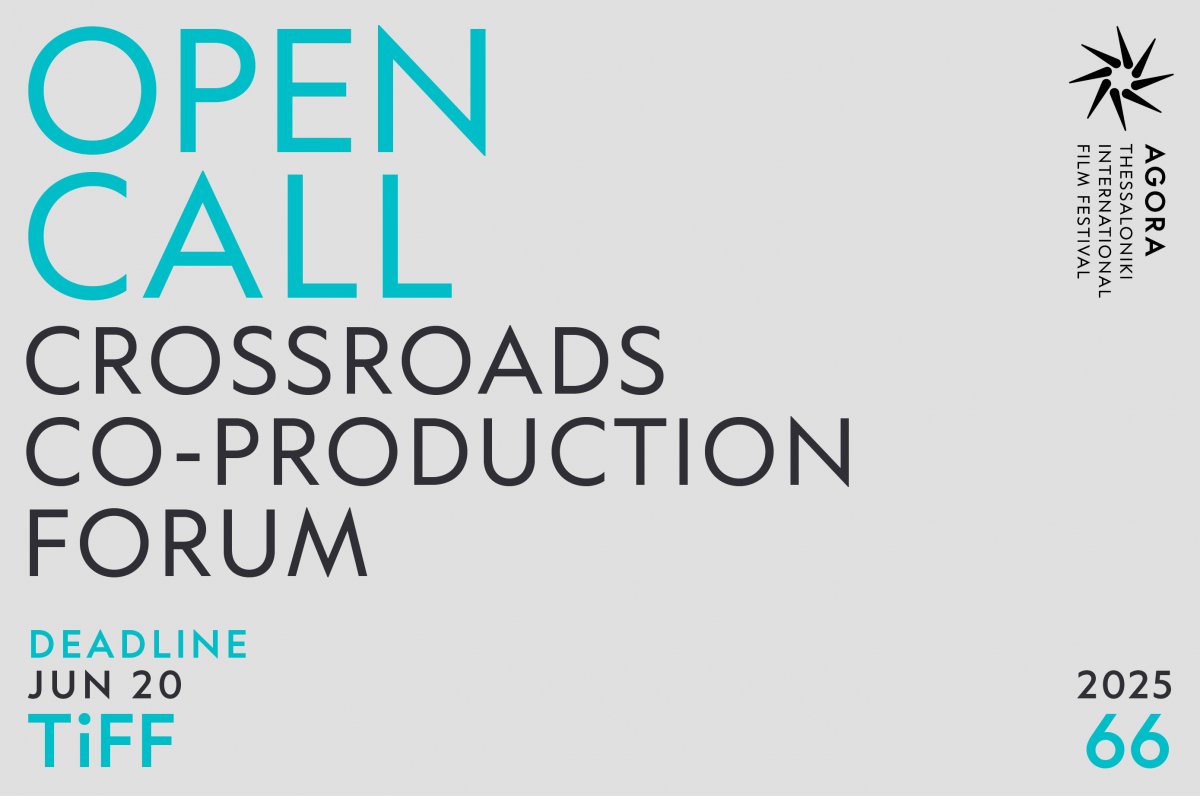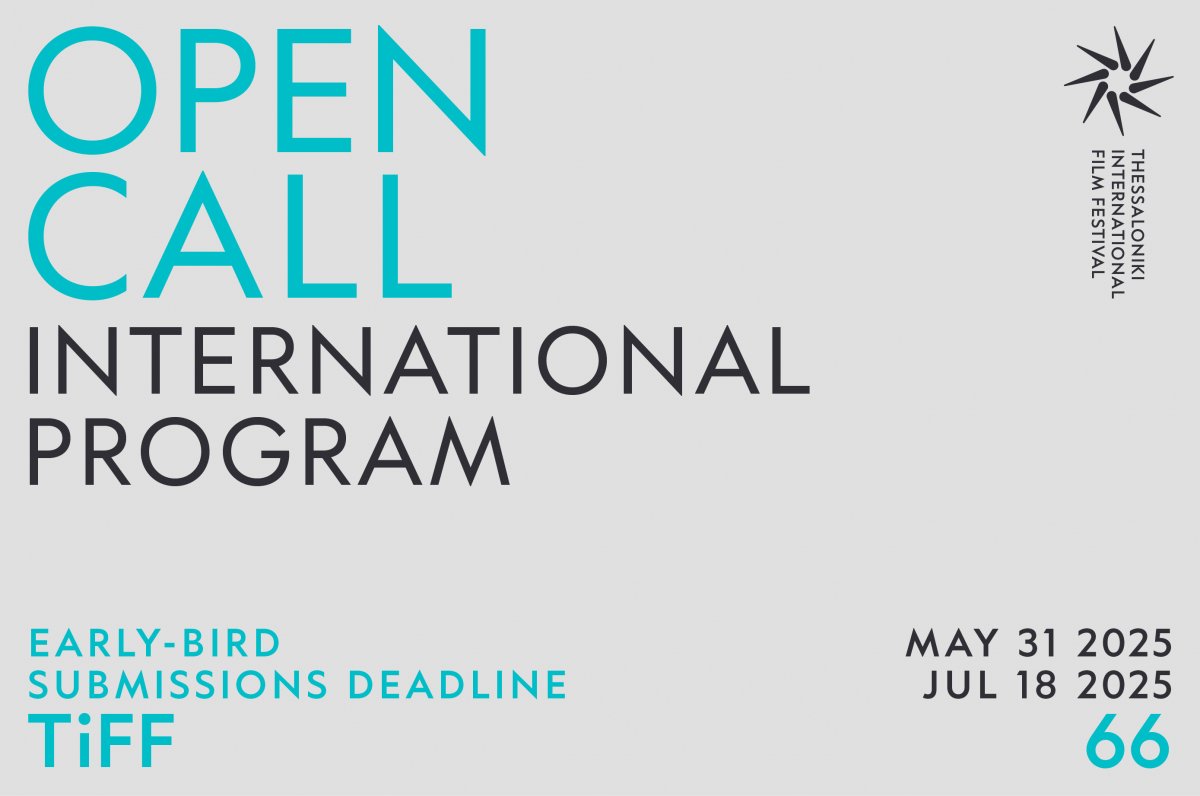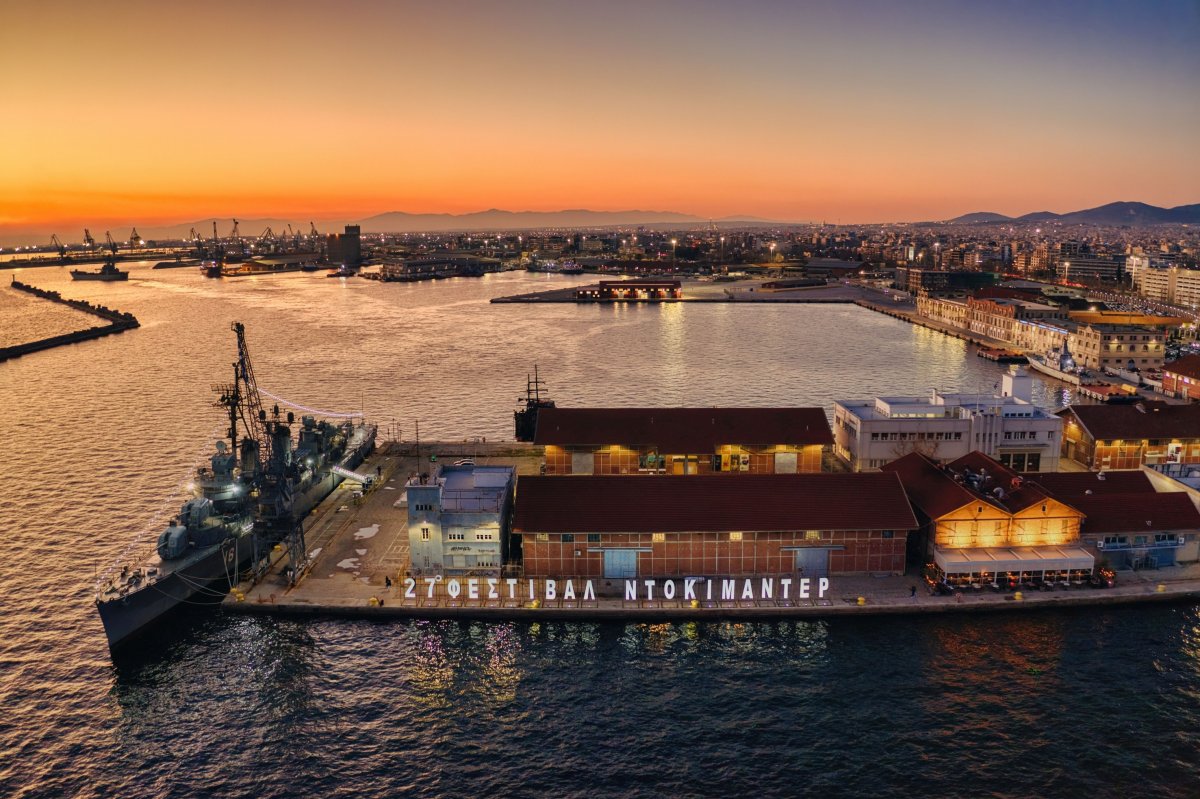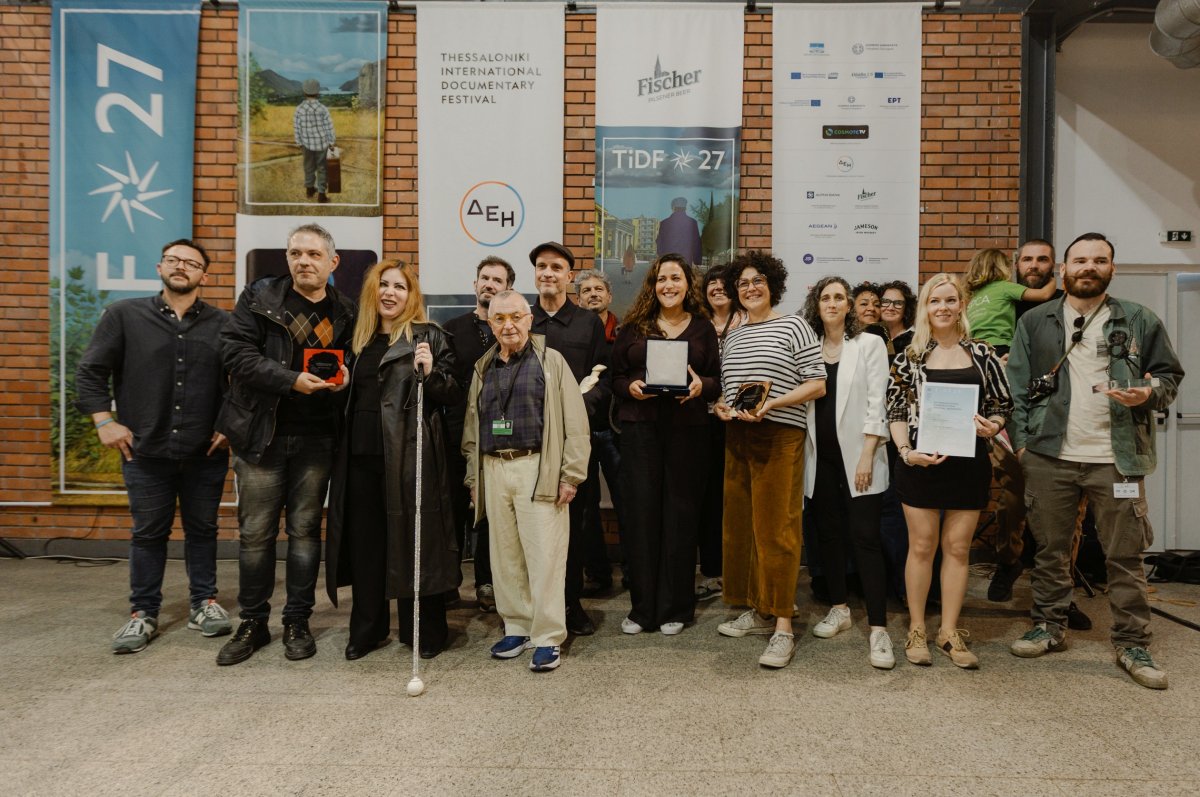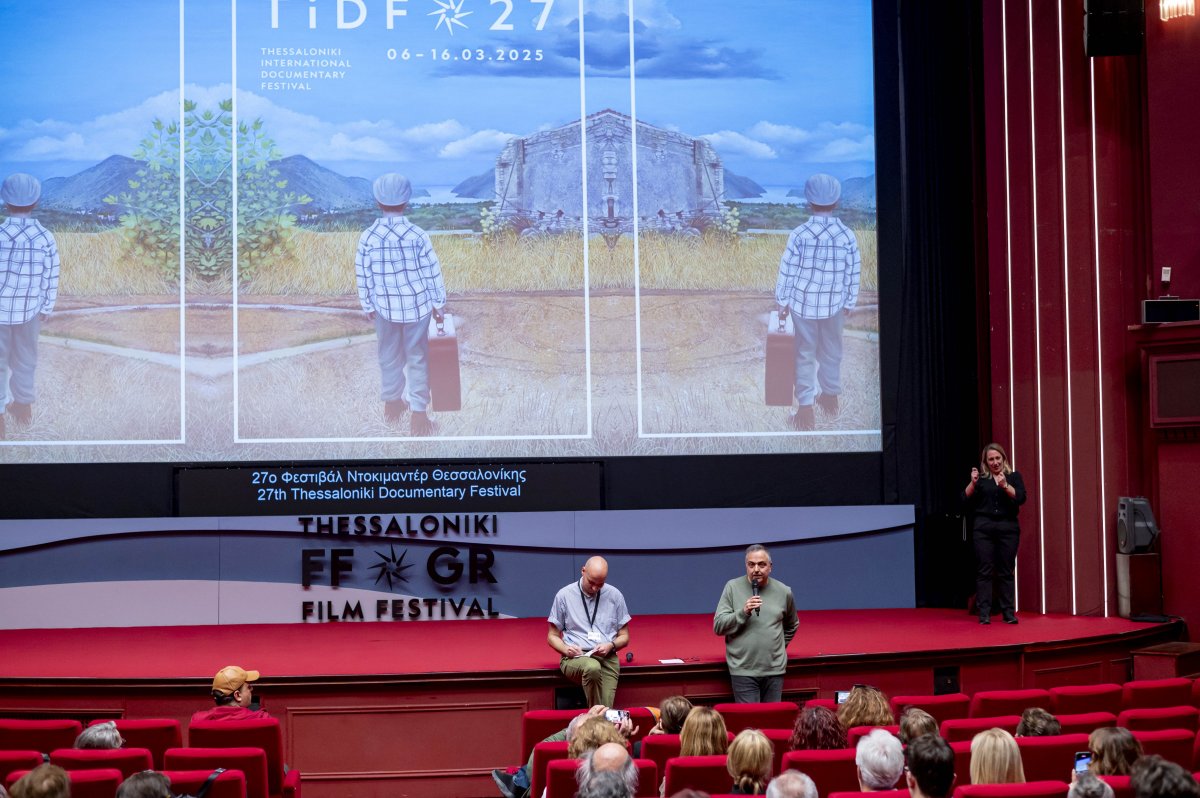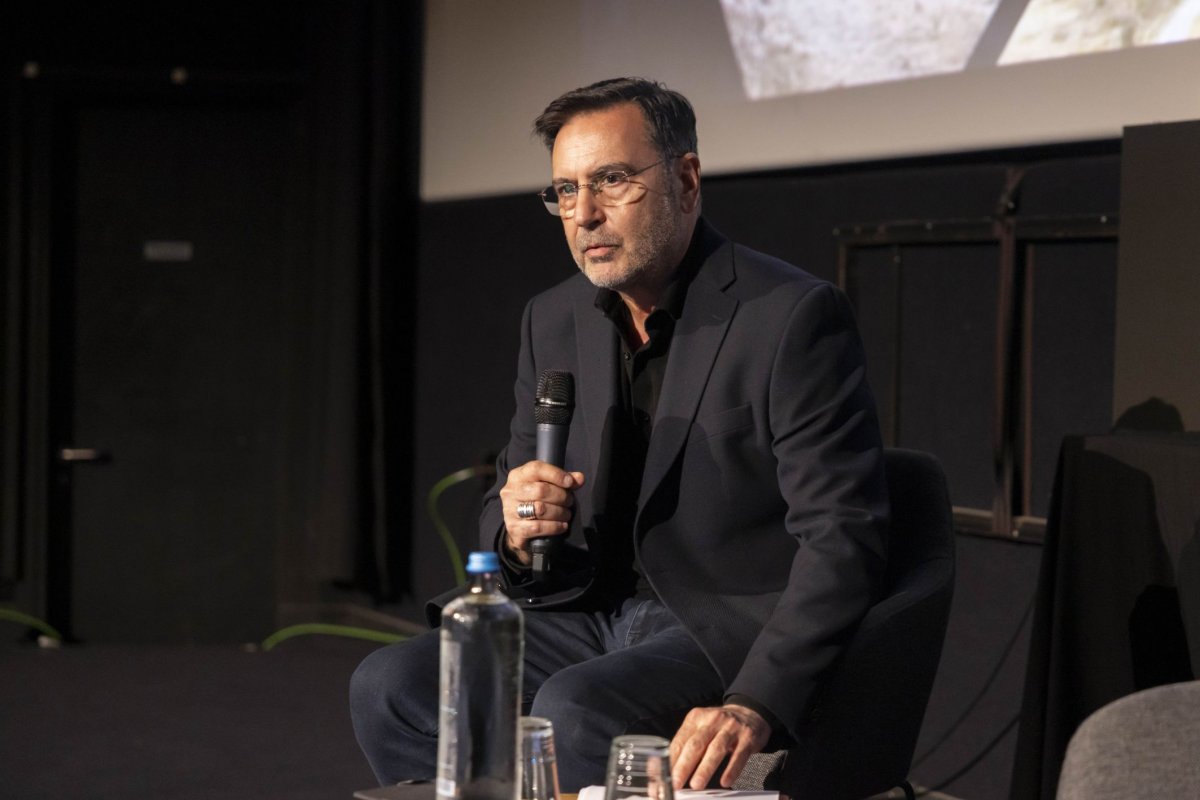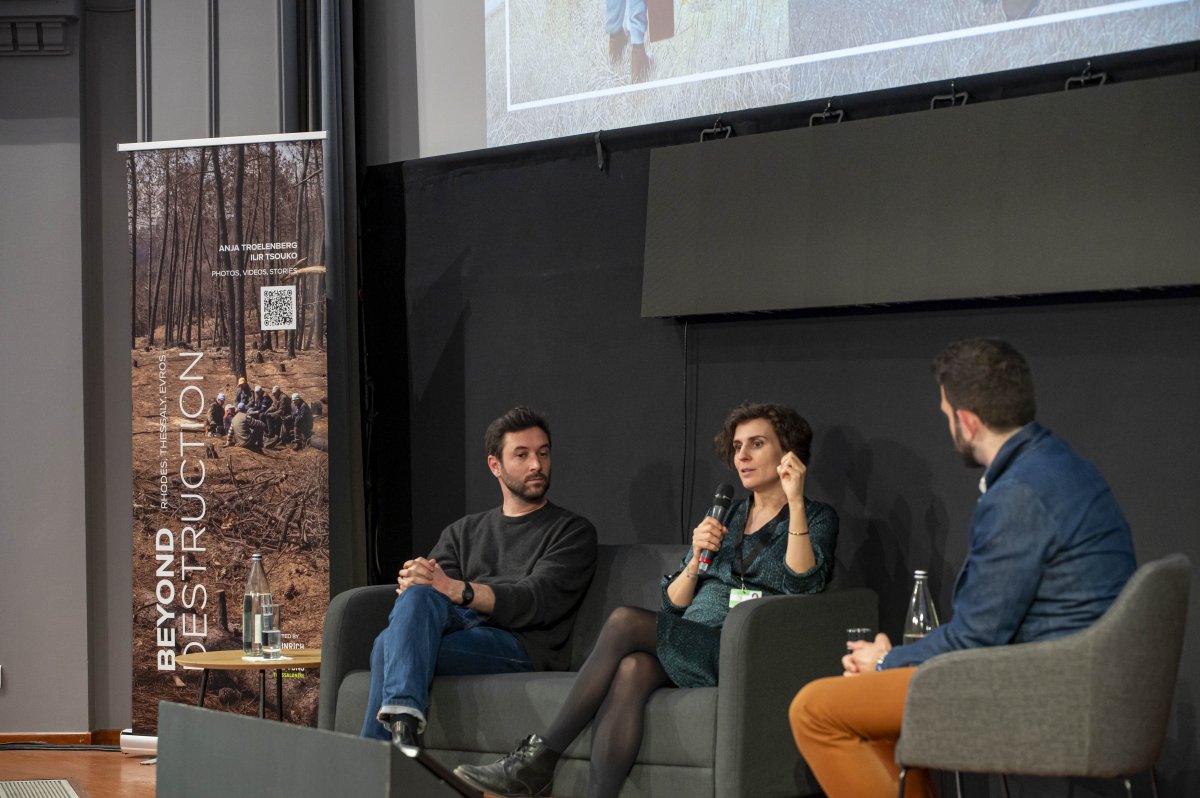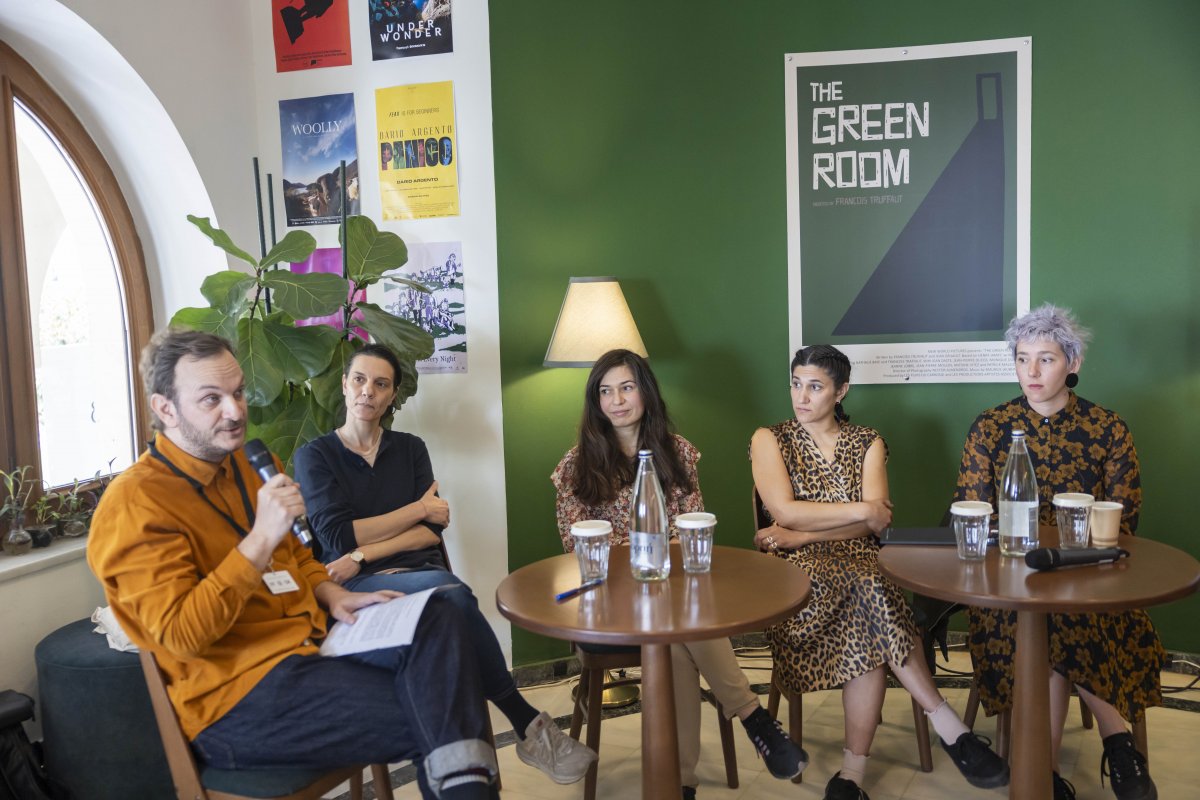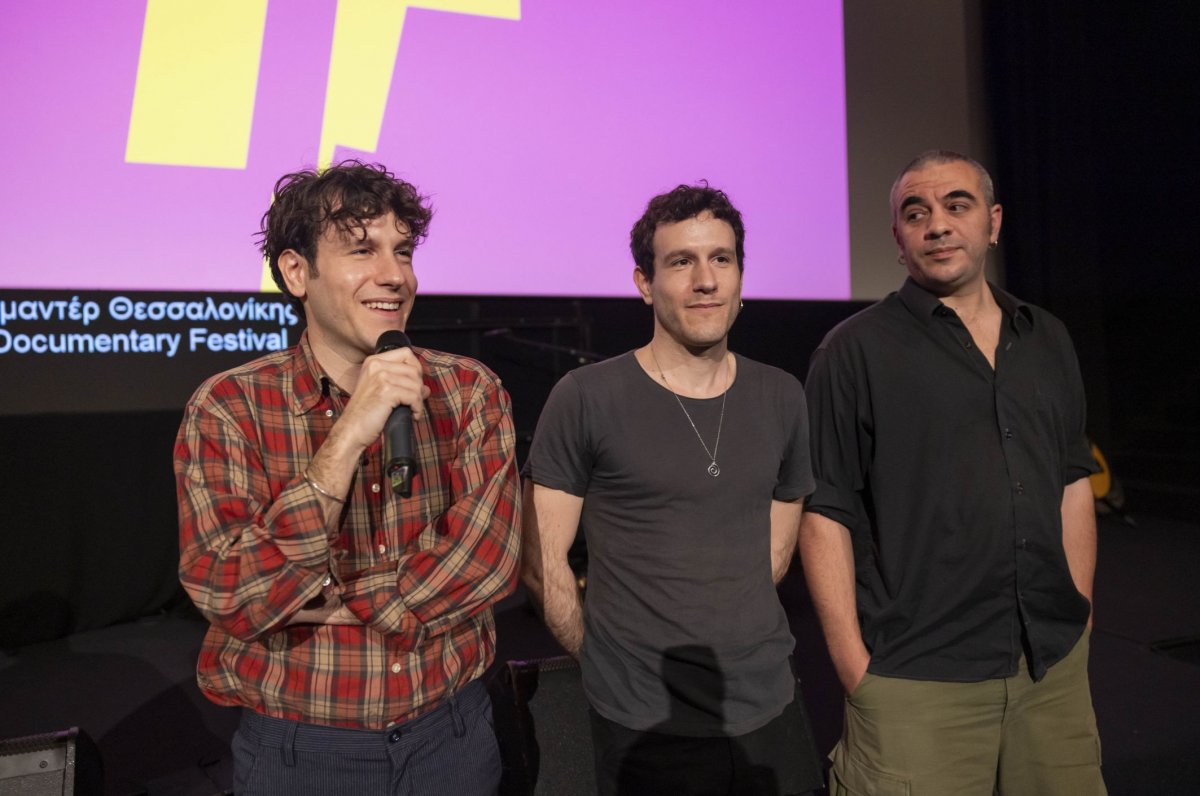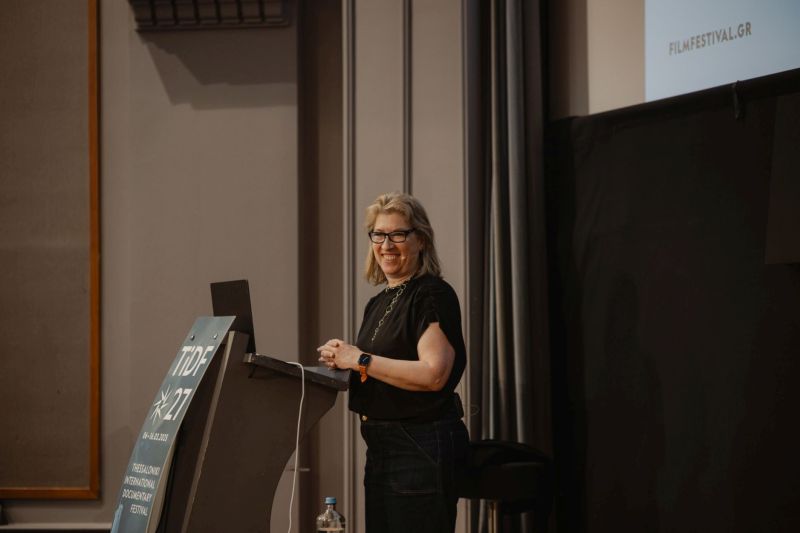Press Conference
“Odyssea Corporum – Ballad for Nikos Koundouros” -
“Elias Tsehos, Either A Drop Or An Ocean” (14/3/2010)
The cycle of Press Conferences for films participating in the International Programme of the 12th Thessaloniki Documentary Festival - Images of the 21st Century opened on Sunday, March 14, 2010 at the Ianos bookstore. The first guests were the directors Antonis Boskoitis (Odyssea Corporum – Ballad for Nikos Koundouros) and Elias Iosifidis (Elias Tsehos, Either A Drop Or An Ocean) , whose films are participating in the “Portraits: Human Journeys” section of the Festival.
Antonis Boskoitis attempted to compose a portrait of Nikos Koundouros in his film, while Elias Iosifidis, as he himself noted, focused on Elias Tsehos, one of the most important modern Greek poets who has written seven anthologies, but his work is not widely recognized.
Actor Petros Fyssoun, who had worked with Nikos Koundouros on the film “The Illegals”, had said that “Nikos had the habit of tormenting people during shootings”. Antonis Boskoitis, speaking about the problems he faced during the shooting for his documentary on the recognized director noted: “It’s like wrestling with a beast, from the beginning of the film until the end, even now. You know ahead of time that when you work with Koundouros you are faced with a sweeping, unconventional personality. We went through periods of argument and reconciliation, but I believe that the result has vindicated us”.
As the director said, the unconventionality of his character showed through his desire that the film not seem like a television tribute to himself. “The only thing he pointed out to me was that the film not become a ‘hagiography’ where people would speak only kind words”. Speaking about the sequence on which the entire film is based, he said: “We managed to get together 10 semi naked women after trying very hard, and we created elements that clearly appeared in his film ‘Bordello’. I knew he was getting ready to make a film and as soon as he came to the shoot and saw that atmosphere he got into the spirit of things immediately and the director inside him awoke. That’s what we recorded with the camera.” Antonis Boskoitis added that his purpose was to show some elements of Nikos Koundouros’ idiosyncrasies. “My advantage was that I knew Koundouros personally, and I tried to use our relationships through the film”.
When asked what unknown elements of Nikos Koundouros’ personality are revealed in the film, the director answered by referring to the end of the film. “Manos Vakousis has called him ‘man-beast, tender man’. I believe this shows the double nature of his personality, and he himself admitted that it was the best testimony in the film”. και ο ίδιος παραδέχτηκε ότι ήταν η ωραιότερη μαρτυρία μέσα στην ταινία».
Elias Iosifidis, speaking about Elias Tsehos noted that this is one of those poets whose work will be recognized after many years. “He is a tsunami which is deep in the ocean and hasn’t reached the shore yet. We met in Athens where he was working as a dancer and an extra while writing poetry. When I managed to break the code of his poetry I understood his dynamics and that poetry is the quintessential art form”, he noted.
As he said, the reason for making the film was the poet’s “silence” during the last ten years, during which he had retired to his birthplace, the Giannakohori village in Vermio. “I began making the film without a script, wanting to highlight his poetry so that he could find his lost inspiration. The result was that he composed 80% of the poems presented in the film during shootings, and created his latest anthology” the director noted.
Asked about the difficulties involved in the visualization of poetic language, Elias Iosifidis noted that the film records the poet’s travelogue visually. “Poetry cannot become image. But we were helped by the composition of the moment, filming in real time and every day life, and I believe we combined poetry with the image”.
Commenting on filming portraits, Antonis Boskoitis noted that the basic element of his work is passion and the relationship he has with the subject he is filming. “My first portrait was a film on the singer Flery Dadonaki, eight years ago. I collected sound recordings, I had an archive, I studied everything. I did the same with Nikos Koundouros, the film is the result of a ten year relationship with him, and of my love for his films. I can’t do a documentary on assignment, in any case I don’t make my living through that”, he noted.
Elias Iosifidis on his part stressed that his film “Elias Tsehos, Either A Drop Or An Ocean” doesn’t belong in the “portrait” category, but is a film on the poet shot in real time. “I love the documentary form better than fiction. I am bored with it and I prefer working with real images. I consider the documentary the quintessence of film art”, the director concluded.



